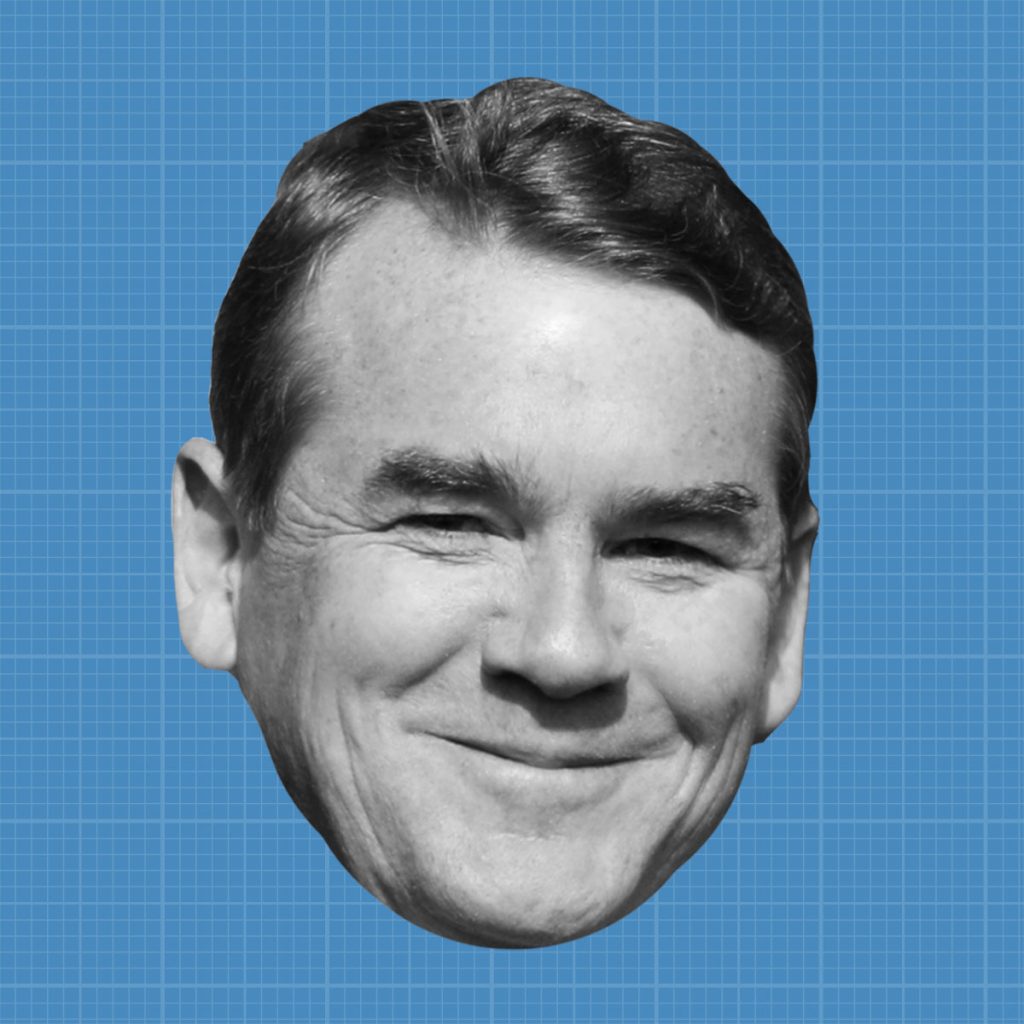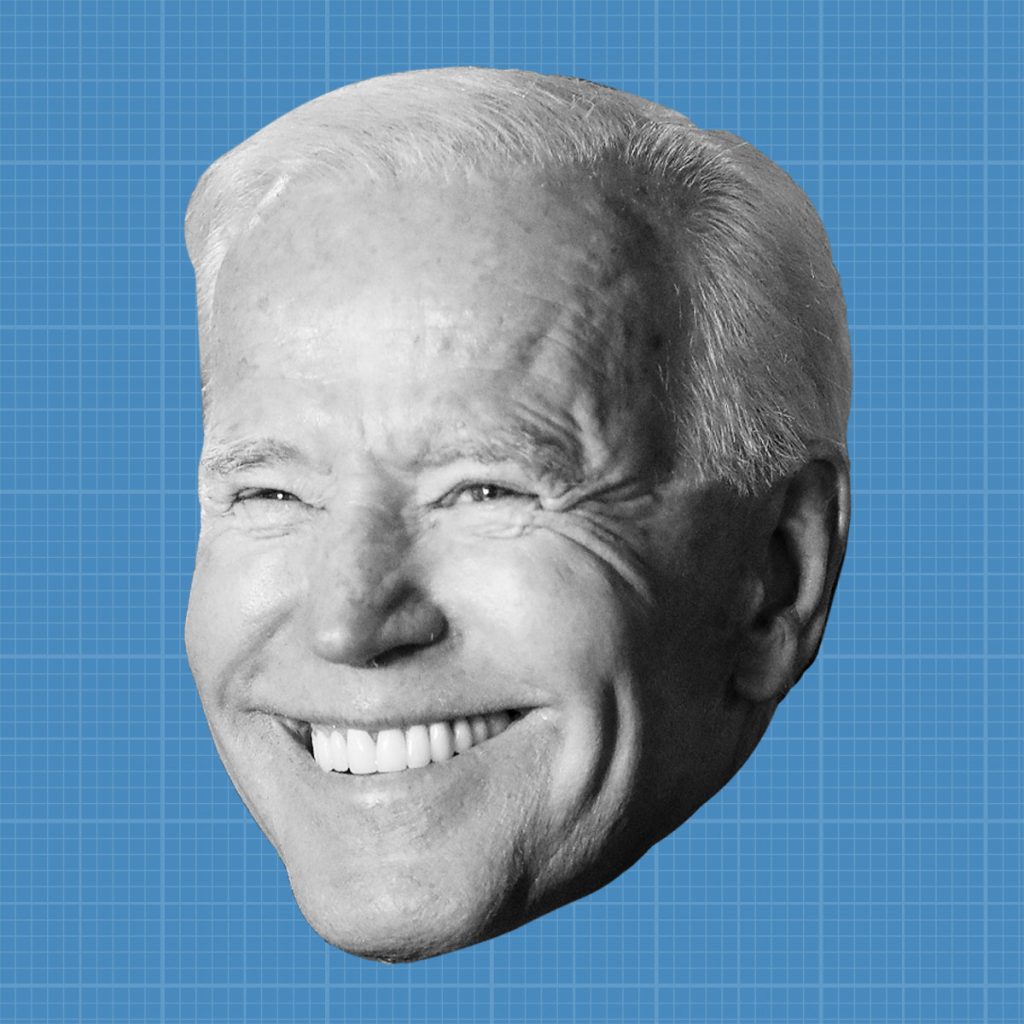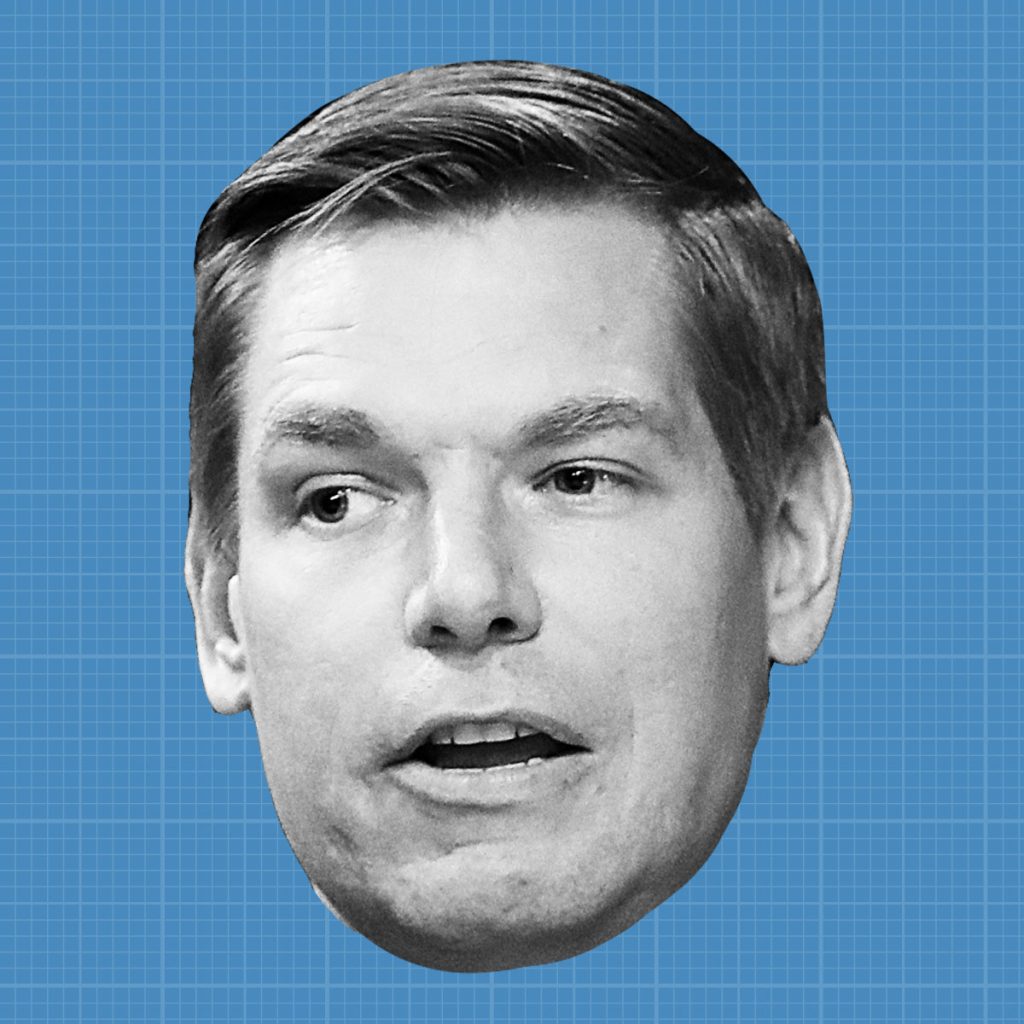Here’s Where the 2020 Presidential Candidates Stand on Cannabis
- District Gardens Team
- Jul 25, 2019
- 9 min read

With dozens of declared candidates ready to take on President Trump in Nov. 2020, America’s aspiring chief executives are scrambling for ways to catch the eyes of primary voters. So why not use cannabis as a sorting device?
Cannabis used to be a liberals-only issue, but not anymore. In fact, President Trump’s only declared primary challenger (so far), former Massachusetts Gov. William Weld, is an outspoken libertarian and full-throated advocate for legalization.


By contrast, the Democratic frontrunner in the summer of 2019, former Vice President Joe Biden, established himself as an ardent drug warrior in the 1990s and can’t understand why so many young people today want to legalize.
We did the research. Here’s what we found (in alphabetical order). Vote, donate, and volunteer as your conscience demands.

Michael Bennet
US senator, Colorado

Although he opposed Colorado’s 2012 legalization bill, Amendment 64, Bennet has since become a champion of cannabis legalization, as well as hemp. Most recently, he co-signed the 2019 Marijuana Justice Act.
“We see hemp as a great opportunity to diversity our farms and manufacture high-margin products for the American people.” (2018)
Joe Biden
Former vice president, former US senator, Delaware
An outspoken proponent of the war on drugs, as well as the former chair of the Senate Judiciary Committee, Joe Biden hasn’t become much more amenable to cannabis in recent years; he is the only 2020 Democratic candidate who remains explicitly opposed to federal legalization. He supports rescheduling cannabis as a Schedule II drug, which would facilitate scientific research.

An outspoken proponent of the war on drugs, as well as the former chair of the Senate Judiciary Committee, Joe Biden hasn’t become much more amenable to cannabis in recent years; he is the only 2020 Democratic candidate who remains explicitly opposed to federal legalization. He supports rescheduling cannabis as a Schedule II drug, which would facilitate scientific research.
“There’s a difference between sending someone to jail for a few ounces and legalizing it…The punishment should fit the crime. But I think legalization is a mistake. I still believe [marijuana] is a gateway drug.” (2010)
Cory Booker
US senator, New Jersey

A longtime critic of the war on drugs and advocate of cannabis reform, Booker raised the bar on cannabis legislation this year when he became the chief sponsor of the progressive and far-reaching Marijuana Justice Act. Until recently, Booker stood virtually alone in his support for both legalization and social equity programs to help repair the damage done by the war on drugs.
“I believe too many of my young people are being unfairly punished and chewed up by the criminal justice system over small amounts of marijuana. Their lives are being severely and adversely affected by the sheer number of arrests and incarcerations we are making. (2013)
Steve Bullock
Governor and former attorney general, Montana

Although Bullock has been an outspoken advocate of medical marijuana in Montana and a vocal opponent of rescinding the Cole Memo, he has kept mum on federal legalization; his public comments suggest that he is not in favor of recreational cannabis.
“I don’t want unlimited grow operations and things like that. I don’t think anybody does…I don’t think we want the chronic pain of ages 19 to 29 be the largest group [of medical cannabis patients].” (2012)
Pete Buttigieg
Mayor, South Bend, Indiana

Although he’s never tackled cannabis during his time as mayor of South Bend, Buttigieg has become a vocal proponent of ending cannabis prohibition, and often frames the issue in the context of racial disparities.
“What are we going to do…if we decide that it actually doesn’t make sense to [incarcerate] for unbelievably long amounts of time for non-violent drug offenses, what are we going to do for the people we already did that to?” (2019)
Julián Castro
Former HUD secretary, former mayor of San Antonio

As recently as 2014, Castro was skeptical of cannabis reform; in the past couple of years, however, he has become critical of the Trump Administration’s interference with state laws and is seemingly in favor of federal legalization.
“[Rescinding the Cole memo] is a mistake. Colorado and other states have shown we can sensibly legalize marijuana with reasonable controls.” (2017)
Bill DeBlasio
Mayor, New York City

DeBlasio has advocated for reducing cannabis-related arrests since he became mayor of New York City in 2014; he didn’t come out in favor of adult-use legalization until this past December, however, just two days after Governor Cuomo.
“I have been convinced that we can establish a regulatory framework that keeps our streets safe, rights the wrongs of the past, and gives economic opportunity to communities hit hardest by the war on drugs.” (2018)
John Delaney
Former US representative, Maryland

Although he hasn’t sponsored any cannabis legislation himself, Representative Delaney earned a “B” rating from NORML for his consistent voting record in favor of cannabis reform.
“[The war on drugs] has contributed to a criminal justice system where people of color are disproportionately harmed.” (2018)
Tulsi Gabbard
US representative, Hawaii

In the past couple of years Gabbard has sponsored and co-sponsored many cannabis reform bills; a military veteran, she has advocated for veterans’ legal access to cannabis. In March 2019, she and Alaska Rep. Don Young introduced the Ending Federal Marijuana Prohibition Act, which would remove cannabis from the federal controlled substances list and allow states to regulate the substance with full authority.
“[The criminal justice system] puts people in prison for smoking marijuana while allowing corporations like Purdue Pharma, who are responsible for the opioid-related deaths of thousands of people, to walk away scot-free with their coffers full.” (2019)
Kirsten Gillibrand
US senator, New York

While Gillibrand has publicly advocated for medical cannabis since at least 2014, she has recently evolved to become one of the most vocal pro-legalization candidates vying for the Democratic nomination.
“Sadly, as you will hear from my constituents, for decades, the so-called ‘war on drugs’ has not been pursued with equality.” (2018, in a letter to then-AG Sessions)
In early June, Gillibrand became one of the few candidates to roll out a full legalization plan. “Legalization is a criminal justice issue, a health care issue, and an economic issue,” she wrote. “It’s past time to make this happen at the federal level.”
Kamala Harris
US senator, California; former attorney general, California

Harris has made the most dramatic shift in her cannabis views of any of the 2020 candidates. A few years ago she spoke brazenly about convicting drug dealers in California and openly scoffed at questions of legalization. She has since become a sponsor of the Marijuana Justice Act (although it took her a while). Among the 2020 candidates, she has also become the most open about her own cannabis use.
“The war on drugs was a failure…It criminalized what is a public health matter. It was a war on poor communities more than anything.” (2017)
John Hickenlooper
Former governor, Colorado

Even though Hickenlooper used to consider cannabis a “gateway drug” and publicly opposed Colorado’s legalization efforts, he has since come around to the issue and signed many cannabis reform bills while in office. Still, no legalization advocate in Colorado would consider Hickenlooper an ally. He allowed the will of the voters to take effect in 2012, but he didn’t like legalization then and he’s still not a big fan of it now.
“…federal law still says marijuana is an illegal drug, so don’t break out the Cheetos or goldfish too quickly.” (2012)
Jay Inslee
Governor, Washington

Like Hickenlooper, Inslee was initially opposed to legalization in his state, but has since become an advocate of federal cannabis reform, and has championed expunging marijuana misdemeanor charges in the state. Earlier this year he announced that he would pardon 3,500 people with low-level cannabis convictions statewide. Which is more than Hickenlooper has done.
“As states continue to legalize medical and recreational marijuana, there is more that the federal government must to do to provide states with legal certainty and empower the operation of safe systems across the country.” (2016)
Amy Klobuchar
US senator, Minnesota

Klobuchar addresses cannabis far less than most of the other candidates on the campaign trail. Although she signed on to the STATES Act, she has not supported the Marijuana Justice Act. Shortly before announcing her bid for presidency, she deleted a statement of support for the state’s medical marijuana program from her website. But then in February, a little more than a week after entering the presidential race, she said she now supportsadult-use legalization, a full 180-degree pivot from her previous policy.
“I support the legalization of marijuana and believe that states should have the right to determine the best approach to marijuana within their borders.”
📷MPR News✔@MPRnewsMinnesota Sen. Amy Klobuchar said she now supports legalizing recreational marijuana, a full turn from her stance on the issue from when she first entered the public arena. https://blogs.mprnews.org/capitol-view/2019/02/klobuchar-completes-evolution-on-marijuana/ … 📷In shift, Klobuchar now supports legalizing marijuana The position puts her in line with several other Democrats seeking the party's 2020 nomination. But it is a complete evolution from her first campaign for office. She flatly opposed legalization as a... blogs.mprnews.org406:19 PM - Feb 22, 2019Twitter Ads info and privacy
Wayne Messam
Mayor, Miramar, Florida

Messam, the longest of the long shots, has not publicly revealed a position on legalization. Very little is known about Messam’s stance on cannabis—or any other issue, for that matter, aside from fighting climate change and the NRA.
“As long as those states that choose to do so continue to enforce DUI laws, spread economic benefits throughout all communities, and expunge records for those arrested for selling marijuana, they would have my full support as President.” (2019)
Seth Moulton
US representative, Massachusetts

Although he doesn’t speak often about recreational cannabis, Moulton, a military veteran, has spearheaded several bills supporting veterans’ access to medical cannabis.
“We’ve got to bring marijuana out of the shadows and actually regulate it.” (2016)
Beto O’Rourke
Former US representative, Texas

O’Rourke has been advocating for drug reform for a decade, much longer than many of the other 2020 contenders. He is an outspoken advocate of federal legalization.
“We stand a better chance of keeping kids from using marijuana if it is sold by regulated businesses instead of by teenagers on street corners and middle school playgrounds,” (2014)
Tim Ryan
US representative, Ohio

Ryan has a long history of voting for cannabis reform bills, dating back to 2003. His recent co-sponsorship of the Marijuana Justice Act is his boldest move yet. In July 2018, when others were still waffling on the issue, Ryan wrote a CNN op-ed calling for full national legalization.
“We have ignored the social and economic toll of our marijuana laws for too long. It is morally wrong, economically nonsensical, and an unnecessary strain on our already strained law enforcement officials.” (2018)
Bernie Sanders
US senator, Vermont; Former US representative and mayor of Burlington, VT

Sanders is one of the most pro-cannabis candidates on this list, and he didn’t just discover the issue last month. He first pushed for cannabis legalization 20 years ago, and, during the 2016 election, became the first major party Presidential candidate to support cannabis legalization. He’s currently one of the leading sponsors of the Marijuana Justice Act in Congress.
“Right now, marijuana is listed by the federal government as a Schedule I drug—meaning that it is considered to be as dangerous as heroin. That is absurd.” (2015)
Eric Swalwell
US representative, California

Update: July 8, 2019 — Rep. Eric Swalwell has dropped out of the race for the Democratic presidential nomination. Swalwell said he was suspending his campaign and would focus on winning reelection to Congress next year.
Swalwell, a former prosecutor, has earned an “A” rating from NORML for his longtime support of cannabis reform. Unlike many other 2020 candidates, including fellow Californian Kamala Harris, he endorsed his state’s adult-use initiative long before it passed.
“Prosecution of marijuana violations clog our already overburdened courts and cost hundreds of millions of dollars annually to enforce.” (2016)
Donald Trump
US president, businessman

Trump has sent mixed messages on cannabis over the past few years. He has said that the issue should be determined by individual states, but also nominated an epically anti-cannabis attorney general, Jeff Sessions. Trump had issues with Sessions, but the AG’s bizarre obsession with cannabis was not one of them. Trump did nothing to halt Sessions’ major move on cannabis, rescinding the Cole Memo in early 2018. Recently his administration shot down a series of bills to facilitate veterans’ access to cannabis. And the White House has blocked a bill that would make it easier to study the use of medical cannabis by those same veterans. In a recent column, Leafly’s Bruce Barcott said this about the gap between Trump’s words and deeds on cannabis issues:
Still wondering what Trump thinks about legalization? Hang on, let me order a big-ass neon billboard from Obvious Signage & Sons. Here’s what it says: HE’S AGAINST IT.
“In terms of marijuana and legalization, I think that should be a state issue, state-by-state. Marijuana is such a big thing.” (2015)
Elizabeth Warren
US senator, Massachusetts

Although Warren did not support her state’s adult-use cannabis bill in 2016, she has since evolved significantly on the issue; she has sponsored and endorsed a wide range of cannabis reform bills, including the STATES Act, the leading bill to end federal prohibition.
“No one should go to jail for a joint. But more Americans are arrested for marijuana possession than all violent crimes combined.” (2018)
William Weld
Former governor, Massachusetts

Weld has had a bizarre relationship with cannabis. Or maybe he’s just evolving. He was President Reagan’s man in Massachusetts during the height of the war on drugs in the 1980s, but by 2016 he was the Libertarian party’s candidate for vice president, running alongside former cannabis company executive Gary Johnson, on an anti-prohibition platform. He’s now come back to the Republican fold and currently sits on the board of Acreage Holdings with former US Speaker of the House and longtime cannabis opponent John Boehner.
“I think [national legalization] is inevitable. I don’t think any politician is going to be able to stop it.” (2018)
Marianne Williamson
Author

Williamson has not made cannabis a central element of her campaign, but has iterated her support of legalization and the need of a crackdown on the opioid epidemic.
“If marijuana were legal, it would be more of a controlled substance…not less.” (2013)
📷Marianne Williamson✔@marwilliamsonIsn't something backwards when assault weapons are legal, but marijuana is not? 6712:51 AM - Aug 21, 2013Twitter Ads info and privacy
Andrew Yang
Entrepreneur

Yang has been explicit about his pro-legalization views since jumping into the campaign; recently, however, he had to walk back a promise to pardon all non-violent drug offenders on 4/20 to only include individuals convicted of violating federal marijuana laws.
“Our criminalization of marijuana is stupid and racist, particularly now that it’s legal in some states.” (2018)





Comments